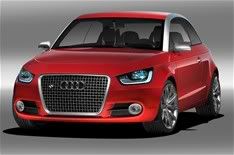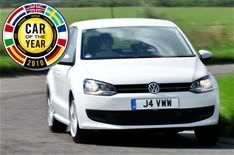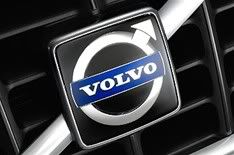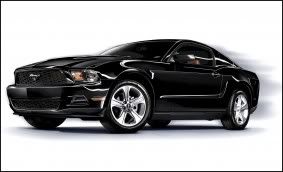
It’s being hailed as the ultimate, most advanced road car Ferrari has ever made. Aiming to leave exotic rivals including the Lamborghini Reventón and Bugatti Veyron trailing, the ferocious flagship will break from the norm in more ways than one. And our stunning illustrations show how such a model could look.
It will be not only quicker and more focused than the Enzo, but smaller, lighter and more fuel efficient, too. In addition, the latest rumours suggest a twin-turbo V8 will provide the power. It will be the first use of turbos in a production Ferrari since the 1987 F40, making this the spiritual successor to that definitive hypercar.
Internally codenamed the F70, the newcomer will use knowledge gathered from the FXX scheme. This invited customers to buy a pumped-up and stripped-out version of the Enzo for £1.5million, but allowed them to drive their purchases only on approved track days. Afterwards, they briefed Ferrari on possible improvements.
The philosophy behind this new downsized and lightweight hypercar is derived from 2007’s Millechilli concept. Although little more than a fibreglass model, it demonstrated Ferrari’s aim to increase the performance of future models by shedding weight, not by hiking power. Millechilli means 1,000kg in Italian. It’s an ambitious target for the F70’s kerbweight – a full 365kg less than the Enzo – but Ferrari is ready to apply every weight-saving measure possible.
Rival McLaren is leading the way in lightweight construction, with an F1-style carbon fibre tub forming the basis of its MP4-12C supercar, so Ferrari wants to regain the initiative in this area. An overhauled and shrunken tub, carbon fibre body panels – plus carbon-ceramic brakes and a no-frills cabin – should keep weight to a minimum. Ferrari already heads efforts to reduce CO2, having slashed output by 10 per cent in 2009. It promises further cuts from its current 387g/km average by 2012.
But reducing body mass alone won’t be enough to achieve this. To slash CO2 significantly, the engine also needs an advanced design. The Enzo’s V12 will make way for a new direct-injection twin-turbo V8 – the same layout as in the legendary F40. Output is likely to be on a par with the Enzo’s 660bhp, but that lower weight should put performance on another level. Expect a three-second 0-60mph time and top speed in excess of 230mph.
A twin-turbo V6 is also under consideration, to replace the 458 Italia and California’s V8s. Yet before either unit is signed off, engineers are keen to eliminate turbo lag. The F40 was famous for the delay between throttle inputs and the arrival of a savage wave of torque. But Ferrari claims it won’t resort to turbos again until it’s perfected the technology to give the instant response for which its naturally aspirated cars are renowned.
One option is electric or hybrid chargers. These use a small electric motor to spool the turbos up to operating speeds much faster than in a normal set-up, where exhaust gas has to be recirculated. The result is a virtual elimination of turbo lag and a linear power delivery that will be familiar to owners of current Ferraris.
Just like the Enzo, the F70 will be strictly limited to a production run of 399 examples, adhering to Ferrari’s philosophy of always building one less car than you think you can sell. But not just anyone will be able to put their name on the waiting list. Buyers will need to be personally invited by Ferrari to stump up the expected million (£600,000) asking price when the car goes on sale in 2012. For more details click
here.
Thanks to: Auto Express
Source URL: http://carrevieeeew.blogspot.com/2009/11/Visit Car Review for Daily Updated Hairstyles Collection























































